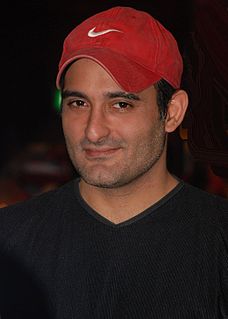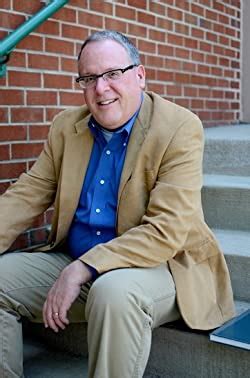A Quote by Glennon Doyle Melton
When in doubt, I choose love above any particular ideas offered to me about faith.
Quote Topics
Related Quotes
As soon as we ask what faith is and what sort of mistreatment of faith causes doubt, we are led to the first major misconception about doubt-the idea that doubt is always wrong because it is the opposite of faith and the same thing as unbelief. What this error leads to is a view of faith that is unrealistic and a view of doubt that is unfair.
Take faith, for example. For many people in our world, the opposite of faith is doubt. The goal, then, within this understanding, is to eliminate doubt. But faith and doubt aren't opposites. Doubt is often a sign that your faith has a pulse, that it's alive and well and exploring and searching. Faith and doubt aren't opposites, they are, it turns out, excellent dance partners.
Out of the element of participation follows the certainty of faith; out of the element of separation follows the doubt in faith. And each is essential for the nature of faith. Sometimes certainty conquers doubt, but it cannot eliminate doubt. The conquered of today may become the conqueror of tomorrow. Sometimes doubt conquers faith, but it still contains faith. Otherwise it would be indifference.
There are constraints on what counts as "Reformed." It's more than a name or a label. It's about belonging to a particular theological stream or tradition, which is shaped in important respects by particular thinkers and their work, particular arguments and ideas, a particular community (especially, particular church communities, denominations, and so on), particular liturgies or ways of worshipping and living out the Christian life, and particular confessions that inform the practices of these communities.
I have no doubt that faith is only pure when it does not negate the faith of another. I have no doubt that evil can be fought and that indifference is no option. I have no doubt that fanaticism is dangerous. And of all the books in the world on life, I have no doubt that the life of one person weighs more than them all.
Doubt is most often the source of our powerlessness. To doubt is to be faithless, to be without hope or belief. When we doubt, our self-talk sounds like this: 'I don't think I can. I don't think I will.'... To doubt is to have faith in the worst possible outcome. It is to believe in the perverseness of the universe, that even if I do well, something I don't know about will get in the way, sabotage me, or get me in the end.
When we love another, we never ever seek to limit or restrict them in any way whatsoever. Love says, "My will for you is your will for you." Love says, "I choose for you what you choose for you." When I say, "I choose for you what I choose for you," then I'm not loving you. I'm loving me through you, because I'm getting what I want, rather than seeing you get what you want.
Faith means the fundamental response to the love that has offered itself up for me. It thus becomes clear that faith is ordered primarily to the inconceivability of God's love, which surpasses us and anticipates us. Love alone is credible; nothing else can be believed, and nothing else ought to be believed. This is the achievement, the 'work' of faith: to recognize this absolute prius, which nothing else can surpass; to believe that there is such a thing as love, absolute love, and that there is nothing higher or greater than it.



































